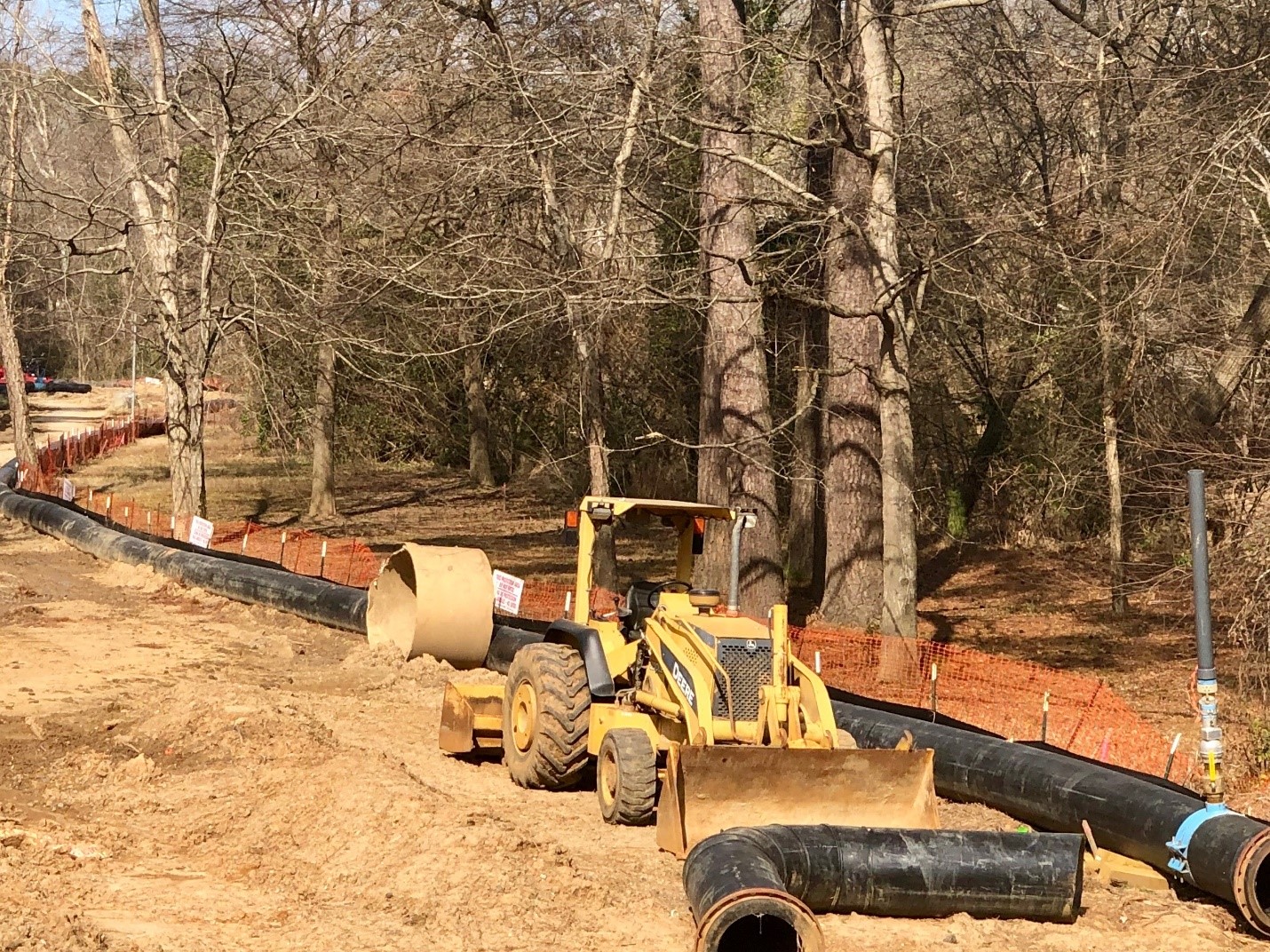The City of Raleigh Public Utilities Staff began the November 19 water and sewer rate work session with an update on recent significant sanitary sewer overflows (SSOs) that occurred the week before due to unusually heavy rains and other contributing factors. Robert Massengill, Raleigh Public Utilities Director, noted, “We do have a plan, and we are working on this.”
SSOs happen in both dry and wet weather and the Public Utilities Department monitors the system to know when and where SSOs are and then addresses them as soon as conditions are safe. When it’s not raining, the main culprit of SSOs is grease buildup and things like flushable wipes clogging pipes. The City’s Operation and Maintenance program works to prevent dry weather SSOs by cleaning 25%-30% of the system each year. Wet weather SSOs are caused by rain and floodwater overwhelming the sewer system when water finds its way into the pipes by lifting manhole lids, seeping into cracks or into poor connections of older pipes. The City works to prevent wet weather SSOs by implementing action plans before known storms like Hurricane Florence. However, Staff noted that the things most needed to prevent SSOs are costly water and sewer infrastructure improvement projects. Wet weather flows when it rains guide the City’s capacity study and help identify Capital Improvement Projects (CIPs) like asset management, upgrades to pump stations and interceptor projects that will increase capacity and help reduce SSOs. Staff reported that in five to seven years they will transition from reactive management to proactive management of SSOs.
The consultant’s update on the Cost of Service Study showed that the cost of service assumptions is revenue neutral – currently income from rates and expenditures on infrastructure repairs and upgrades are almost identical. Staff provided a few options for rate adjustments between customers explaining how they would impact residential and non-residential accounts. Currently, non-residential/commercial users are paying sightly more. Reclaimed water rates, which are set lower than normal rates to incentivize the use of reclaimed water, have a direct benefit to a small percentage of utility customers and it has an indirect benefit to all utility customers by providing nitrogen off-sets needed for the City to meet its state and federal permit requirements.
City Councilors asked staff to investigate other areas where rates could be adjusted. One suggestion was to look at industrial users with pre-treatment requirements to see if fees or surcharges could be charged for not meeting parameters of their permit. This could be a way to add revenue and because it’s better to capture the pollutant before it is released rather than treating it later in the process.
In Conclusion: A long-term proactive management plan is important for environmental protection. It is also key factor to keep in mind when considering water and sewer rates, especially because we know that paying for planned repair projects is more cost effective than paying for emergency repairs. The desire to keep rates fair between different customers is important as the City deals with housing affordability concerns in a fast-growing area. However, it does not remove the City’s responsibility to provide clean reliable water, and water and sewer rates should be set each year to make it happen.
Watch the three work sessions to find out more:
November 19, 2018 City of Raleigh Work Session
October 22, 2018 City of Raleigh Work Session
September 18, 2018 City of Raleigh Work Session


